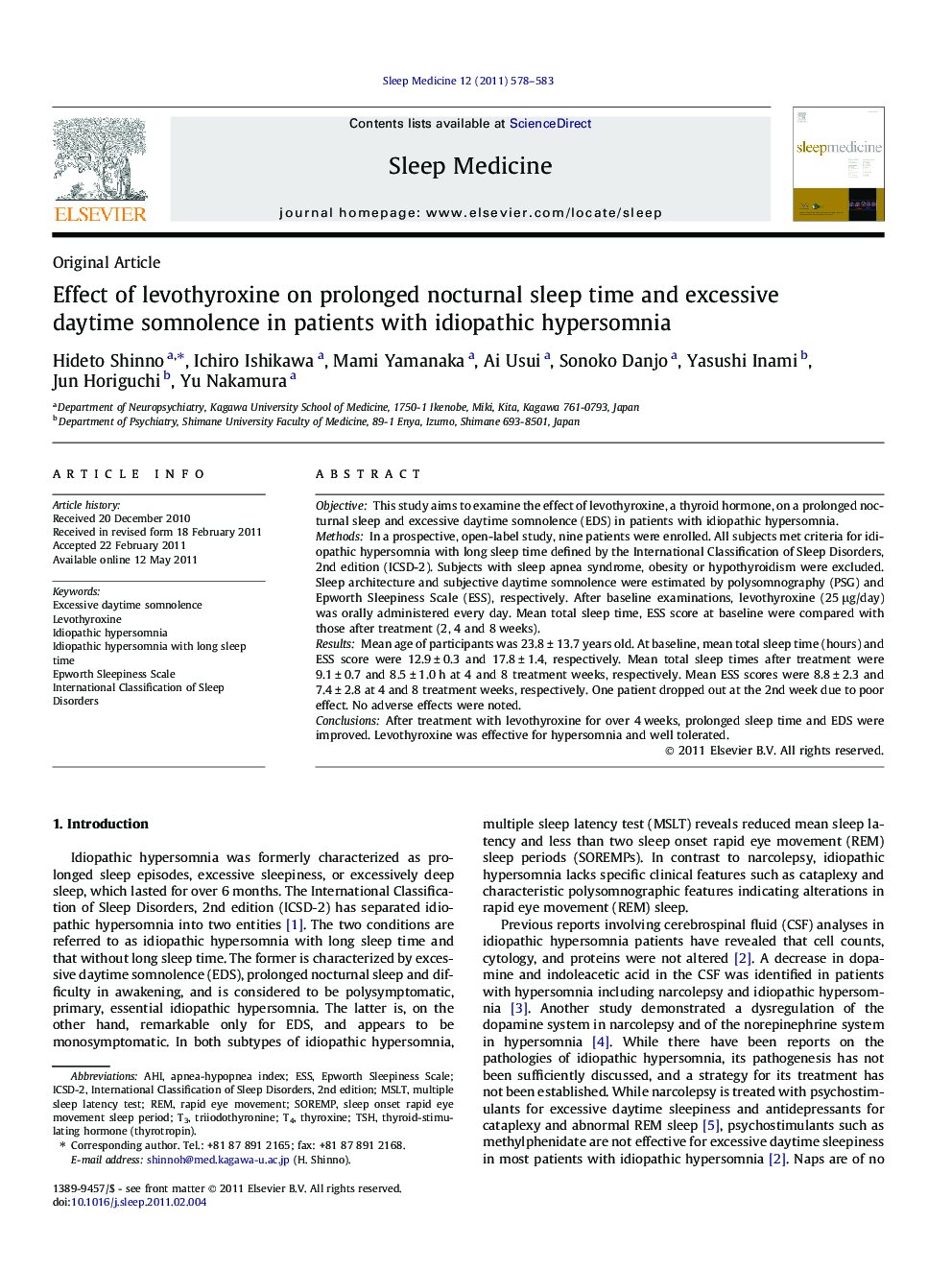| Article ID | Journal | Published Year | Pages | File Type |
|---|---|---|---|---|
| 3176840 | Sleep Medicine | 2011 | 6 Pages |
ObjectiveThis study aims to examine the effect of levothyroxine, a thyroid hormone, on a prolonged nocturnal sleep and excessive daytime somnolence (EDS) in patients with idiopathic hypersomnia.MethodsIn a prospective, open-label study, nine patients were enrolled. All subjects met criteria for idiopathic hypersomnia with long sleep time defined by the International Classification of Sleep Disorders, 2nd edition (ICSD-2). Subjects with sleep apnea syndrome, obesity or hypothyroidism were excluded. Sleep architecture and subjective daytime somnolence were estimated by polysomnography (PSG) and Epworth Sleepiness Scale (ESS), respectively. After baseline examinations, levothyroxine (25 μg/day) was orally administered every day. Mean total sleep time, ESS score at baseline were compared with those after treatment (2, 4 and 8 weeks).ResultsMean age of participants was 23.8 ± 13.7 years old. At baseline, mean total sleep time (hours) and ESS score were 12.9 ± 0.3 and 17.8 ± 1.4, respectively. Mean total sleep times after treatment were 9.1 ± 0.7 and 8.5 ± 1.0 h at 4 and 8 treatment weeks, respectively. Mean ESS scores were 8.8 ± 2.3 and 7.4 ± 2.8 at 4 and 8 treatment weeks, respectively. One patient dropped out at the 2nd week due to poor effect. No adverse effects were noted.ConclusionsAfter treatment with levothyroxine for over 4 weeks, prolonged sleep time and EDS were improved. Levothyroxine was effective for hypersomnia and well tolerated.
